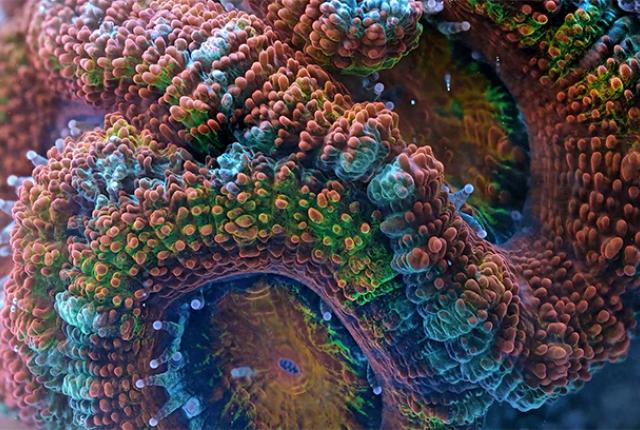Corals and other “slow life” do move, though we often think of them as very nearly static. In order to see their movement, you need to change your perspective — slow way down, photograph in timelapse, and then carefully assemble the result so that humans can understand what that motion looks like from the perspective of such a slow creature. Photographer Daniel Stoupin has done just that with his short film Slow Life, three and a half minutes of timelapse that took nine months to create. Behold, and definitely go fullscreen:
What’s most interesting to me is how much these creatures look like photographs of galaxies. “As above, so below,” as they say.
Stoupin wrote a lengthy article about this film that’s well worth a read. Here’s part:
The most important living organisms that play the key functions in the biosphere might not seem exciting when it comes to motion. Plants, fungi, sponges, corals, plankton, and microorganisms make life on Earth possible and do all the hard biochemical job. Similarly to all living things, they are dynamic, mobile, and fundamentally have the same motion properties as us. They grow, reproduce, spread, move towards source of energy, and away from unfavorable conditions. However, their speeds happen to be out of sync with our narrow perception. Our brains are wired to comprehend and follow fast and dynamic events better, especially those very few that happen at speeds comparable to ours. In a world of blazingly fast predators and escaping prey events where it takes minutes, hours, or days to notice any changes are harder to grasp
(Via Kottke.)
Slow Life from Daniel Stoupin on Vimeo.
Re-posted from mentalfloss.com – April 2014






